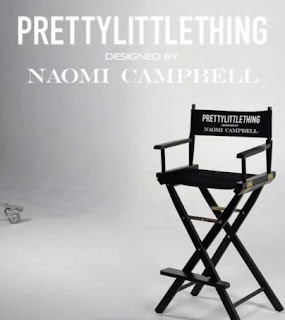by Jameliah K. N. Adekunle
In the world of fashion, the recent collaboration between iconic billionaire model Naomi Campbell and fast-fashion giant PrettyLittleThing (PLT) has stirred both excitement and concern.
However, this partnership goes beyond the realms of fashion, raising questions about ethical practices and sustainability within the industry.
As we delve into this collaboration, we confront the broader social issues tied to fast fashion and its impact on the environment, labor exploitation, and gender inequality.
PrettyLittleThing, established in 2012, has enjoyed tremendous success among fashion-forward young women aged 16 to 24.
Yet, the fast-fashion industry, including PLT, has come under increasing scrutiny for its negative environmental consequences. With over 250 new items introduced each week, this business model contributes significantly to the fashion industry's carbon footprint.
Astonishingly, the fashion sector accounts for approximately 8 to 10% of global CO2 emissions - surpassing international flights and shipping combined.
In the pursuit of addressing these concerns, the collaboration between Naomi Campbell and PLT takes center stage, inviting a closer examination of the brand's sustainability practices.
At the heart of the fast-fashion machine lies a deeply troubling reality for those involved in its production.
Women, particularly women of color, bear the brunt of exploitative labor practices within this industry. Even as the founders of PLT aimed to empower women, the reality is far from this vision.
Female workers, often in developing countries, are forced into jobs such as seamstressing, working under poor conditions and earning meager wages. The COVID-19 pandemic only exacerbated this situation, leading to pay cuts and redundancies disproportionately affecting women.
For Naomi Campbell, an influential black woman in the media, to collaborate with PLT raises questions about representation and support for those affected by intersectional discrimination.
PLT's marketing strategy, heavily reliant on social media influencers and their vast followings, has propelled the brand to cult status.
However, this influencer culture's dark side emerges when it perpetuates the consumption-driven model of fast fashion, encouraging rapid garment turnover and contributing to environmental and ethical concerns. This collaboration between Naomi Campbell and PLT inadvertently exemplifies the potential detrimental effects of influencer culture on society.
As a prominent black woman in the media, Naomi Campbell holds a unique position of influence and responsibility.
Her advocacy for humanitarian causes through her charitable foundation, Fashion for Relief, seemingly contrasts with her choice to collaborate with a brand that profits from the adversity faced by marginalized women. This raises questions about genuine concern for those in need and the potential impact of her actions on vulnerable communities.
The collaboration between Naomi Campbell and PrettyLittleThing is not merely a union of fashion icons but a convergence of social issues that demand attention and introspection. It highlights the urgent need for change within the fast-fashion industry and underscores the importance of ethical and sustainable practices.
As consumers, activists, and influencers, we must collectively question the social and environmental impact of our choices, urging brands to embrace responsible and compassionate business practices. Only then can we steer the fashion industry towards a more equitable and sustainable future.
Edited by Emily Duff

